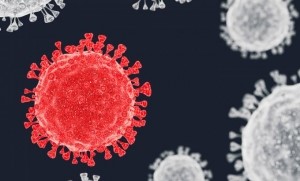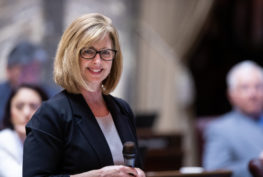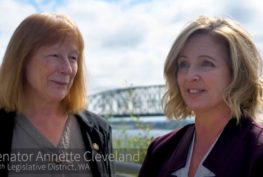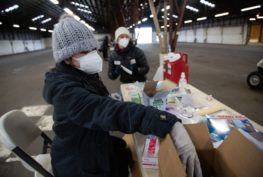In this stressful time of uncertainty over the spread of coronavirus, I’d like to provide an update and a reminder of best practices for avoiding exposure. If we all take this growing health threat seriously and heed the advice of our medical experts, we can get through this, but the days immediately ahead are critical. If people who do not know they have been exposed mingle with others, the exposures will multiply exponentially.
The single most important thing to do now is limit contact with others.
We are in a stage of peak contagion, when exposure to the virus is projected to double every five days. But if we alter our normal behaviors and cut off contact with others, we can reduce the numbers of people who will be exposed, which will in turn reduce the numbers who will test positive, which will in turn reduce the numbers who develop life-threatening illness. We can reduce illness and truly save lives, but only if we take the right steps now.
During this key period, our only way to break the chain of transmission is to vastly limit contact with others. This is why Gov. Inslee has ordered the closure of restaurants and bars, movie theaters and recreational facilities – in other words, anywhere groups of people congregate. While we still need to go out and buy food and medical prescriptions, we should limit our public activities to the bare minimum needed.
Here is what our medical experts tell us is most important:
- Maintain a distance of six feet or more from anyone else.
- If you are 60 years old or older, or if you have an underlying medical condition, you should self-isolate to reduce the risk of exposure; the fatality rate is much higher for people who are older or have compromised immune systems.
- Re-think your daily routine, whether it is socializing with a family member or dear friend to attending group activities like churches or clubs, and limit your activity to only what is absolutely necessary.
- Be there for each other. We are in this together and we need community more than ever. Reach out via phone or text or email to family and friends, to neighbors and anyone you know who you think might need help or reassurance. Just because we should keep our distance physically doesn’t mean we can’t be there for each other emotionally.
Here’s what we’re doing at the state level:
As chair of the Senate Health Care Committee, I worked closely with my Legislative colleagues last week to assemble and pass legislation, HB 2965, appropriating funding to address the coronavirus crisis. Because I know all of us are being impacted in some way by this crisis, we worked hard to ensure that emergent needs can be met and that our state and local health departments have the full resources they need to respond to the pandemic. We are prepared to respond further as needed.
For now, we have provided $200 million to:
- support monitoring, testing and local public health response;
- expand unemployment insurance for people who are quarantined;
- increase access to health care coverage by opening enrollment for anyone who does not currently have health insurance;
- mitigate catastrophic losses at local businesses, for employees as well as employers.
We have also taken action to:
- ensure that people receiving unemployment insurance can continue to do so even if they cannot meet the work search requirements due to quarantine;
- support businesses that rehire employees who had to go on unemployment insurance because of the coronavirus emergency;
- reimburse nursing homes that aid in the coronavirus response; and
- allow school employees to maintain health insurance eligibility for the rest of the school year even if they come up short of required work hours due to this emergency.
As a result of this legislation, state agencies have announced measures to help people and businesses most direly impacted. The governor’s office has assembled a central list of resources here.
To address increased demands for our health care workforce, DOH is registering licensed volunteer health practitioners and has 100 workers already registered. This is allowed under the Volunteer Emergency Health Practitioner Act, a bill we passed in 2018 for states of emergency such as we now face.
In addition, I am working closely with other elected and community leaders to identify and meet any unforeseen needs. I am in contact with our area mayors, our Clark County officials, and local health care partners to share information and update emergent needs or concerns. I maintain conference calls with our legislative caucus as well, so that we each know what’s happening outside our districts as well as within them.
Other actions:
- I’ve heard from many local businesses in Clark County worried about eligibility for Small Business Association loans related to coronavirus, and I can report that the SBA’s freshly released and revised criteria should erase those concerns. This link spells out the process for disaster assistance through the SBA.
- If an employer temporarily shuts down operations because of coronavirus, workers may be eligible for unemployment benefits and the employer may receive relief of benefit costs.
- If workers are exposed to coronavirus and asked to isolate or quarantine by a doctor or health official, they may receive unemployment benefits while they are temporarily away from work. A bill passed recently by the Legislature waives the requirement that people in this situation must be actively searching for work.
- In response to the spread of coronavirus, the Washington Health Benefit Exchange has opened a special enrollment period for health insurance through April 8. You can call 1-855-923-4633 between 7:30 a.m. and 5:30 p.m. Monday through Friday.
- The Insurance Commissioner has required all insurance plans to cover coronavirus tests with no cost-sharing and no prior authorization requirement for people who meet the CDC criteria for testing.
- He has also required insurance plans to allow enrollees to refill their prescriptions early one time in order to maintain an adequate supply.
- You can find more updates from the Insurance Commissioner at this link.
- Many public and private schools have been ordered closed for the duration. You can find more detailed information from the Washington Superintendent of Public Instruction here.
- If you have symptoms and do not have a doctor to call, you can call the state Department of Health call center at 800-525-0127.
Thank you for your patience, help, and kind messages of support. This is a difficult time for everyone, and I am grateful for the positive, can-do attitude of our 49th Legislative District. Together, we will take care of one another and see this through.




